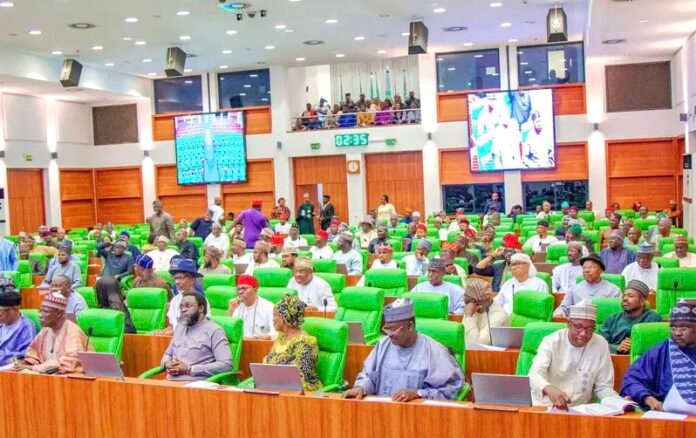The House of Representatives has condemned a bill introduced in the United States Congress that accuses Nigerian officials of enabling the mass killing of Christians.
At its plenary session on Wednesday, the lower chamber unanimously passed a resolution rejecting the allegations, insisting that there is no state-sponsored persecution of Christians in Nigeria. The motion was jointly sponsored by Deputy Speaker Benjamin Kalu and 359 other lawmakers.
The bill, titled the “Nigeria Religious Freedom Accountability Act of 2025,” was introduced by U.S. Senator Ted Cruz. It seeks to impose targeted sanctions on Nigerian officials accused of enforcing Sharia and blasphemy laws, and calls on the U.S. Secretary of State to designate Nigeria as a “country of particular concern.” The bill also recommends keeping Boko Haram and ISIS-West Africa on the U.S. list of entities of particular concern.
The proposed legislation follows renewed international claims that Nigerian Christians are victims of systematic persecution — a claim the Nigerian government continues to reject.
Moving the motion, Kalu argued that the allegations do not reflect the country’s realities. He emphasized that Nigeria’s Constitution guarantees freedom of thought, conscience, and religion, adding that both government and civil society actively protect the rights of all faith groups.
“The issues of insecurity in Nigeria are multi-dimensional — involving insurgency, banditry, farmer-herder conflicts, separatist movements, and communal clashes — all of which affect citizens regardless of religion,” Kalu said. He cautioned that foreign legislative actions based on incomplete assessments could harm Nigeria’s sovereignty, distort facts, and embolden violent actors.
Contributing to the debate, Majority Leader Julius Ihonvbere noted that the U.S. bill had already passed its second reading in the Senate, warning that its passage could damage Nigeria’s reputation and require major diplomatic efforts to repair. “Nigerians are facing economic, social, and security challenges, not religious persecution,” he said.
Oluwole Oke, Chair of the House Committee on Foreign Affairs, criticized the U.S. Senate for excluding Nigerian officials from the bill’s public hearing, describing it as a “deliberate attempt to tarnish Nigeria’s image.” Similarly, Billy Osawaru (Edo State) called it an example of “global politics,” lamenting that Nigeria currently has no ambassador to the U.S. who could have engaged the American lawmakers on the issue.
Following deliberations, the House reaffirmed Nigeria’s commitment to religious freedom and rejected all narratives framing the country’s security crisis as religiously motivated or state-sponsored.
The chamber directed the Ministry of Foreign Affairs and the Nigerian Embassy in Washington, D.C. to file a formal complaint at the United Nations and urged U.S. legislators to consider a joint Nigeria–U.S. fact-finding and dialogue mission.
The Committee on Legislative Compliance was instructed to monitor the implementation of these resolutions and report back within 28 days.
Source:Africa Publicity








